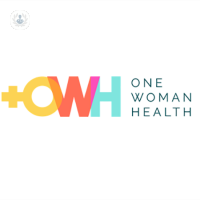Well-woman screening
Dr Hana Patel - GP (general practitioner)
Created on: 09-15-2020
Updated on: 03-29-2023
Edited by: Conor Dunworth
What is well-woman screening?
A well-woman screening is an exam offered to women to review elements of their reproductive health and other areas. It is preventative health screening that is designed to address specific health needs of women, it also identifies any early signs of degenerative illness or other potential health risk factors.

What does it consist of/involve?
It usually consists of a review of surgical, past medical, social and family history.
It involves carrying out appropriate tests which may include:
- Sexually transmitted disease screening
- A pap smear
- Cholesterol test
- Bone density test
- Mammogram
- Vital signs assessment
- Physical examination including pelvic and breast exam, if needed
- Electrocardiogram
- Hemoglobin A1C test
- Cervical smear & HPV screening
- Hormone screening
- Full blood count checks
- Blood pressure and weight checks
- Liver and kidney function test
- Transvaginal scans
- CA 125 for Ovarian Screening
The different tests you receive in a well-woman screening could depend upon your age or your medical history.
Why is well-woman screening done?
The purpose of this exam in women is to screen for potential abnormalities, such as sexually transmitted diseases, and malignancy.
Essentially a well-woman test looks for red flags that could signal a range of problems like breast or cervical cancer and pelvic disorders.
Preparation for well-woman screening
When preparing for well-woman screening, it is recommended that you:
- Know your family health history.
Your family's health history is an important part of your personal health record. Make sure you are aware of the conditions that run in your family.
You will want to share your medical history with your doctor or nurse this information during your well-woman check-up.
Make a list of questions for your doctor.
This visit is a great time to ask the doctor or nurse any questions about:
- Birth control
- Sexually transmitted diseases
- Pregancy
- Menopause
- Relationships
- Mental health issues such as depression or anxiety.
- Nutrition
- Physical activities.
What should I expect from a well-woman test?
1. Questions
Before your physical exam, your doctor will ask you to answer some questions about your overall health. These questions may cover topics like your:
- Medical history and family health history
- Sexual health
- Physical activity and your eating habits
- Use of tobacco, alcohol and other drugs
- Use of any vitamins, medicines, minerals, or herbs
- Mental health history including depression
- Relationships and safety
2. Physical exams
The doctor or nurse will examine your body, this may include:
- Measuring your weight and height
- Calculating your body mass index (BMI)
- Checking your blood pressure
- Taking your temperature
- Doing a clinical breast exam
- Doing a pelvic exam
3. Discussion of health goals
You and the doctor will talk about the next steps for helping you stay healthy. From this, you will decide which screenings or follow-up services are right for you.
If you have health goals, like quitting smoking or losing weight, your doctor can help you create a plan to achieve this.









